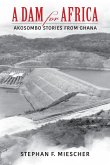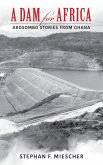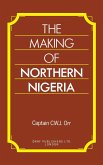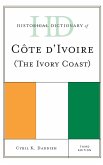Even leaving aside the vast death and suffering that it wrought on indigenous populations, German ambitions to transform Southwest Africa in the early part of the twentieth century were futile for most. For years colonists wrestled ocean waters, desert landscapes, and widespread aridity as they tried to reach inland in their effort of turning outwardly barren lands into a profitable settler colony. In his innovative environmental history, Martin Kalb outlines the development of the colony up to World War I, deconstructing the common settler narrative, all to reveal the importance of natural forces and the Kaisereich's everyday violence.
Hinweis: Dieser Artikel kann nur an eine deutsche Lieferadresse ausgeliefert werden.
Hinweis: Dieser Artikel kann nur an eine deutsche Lieferadresse ausgeliefert werden.








